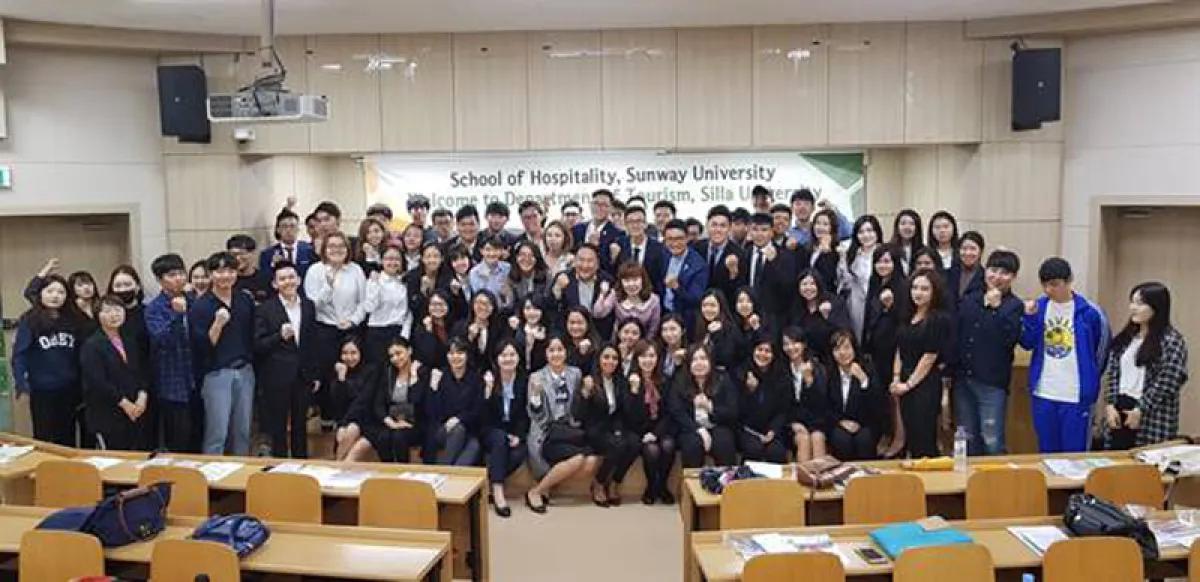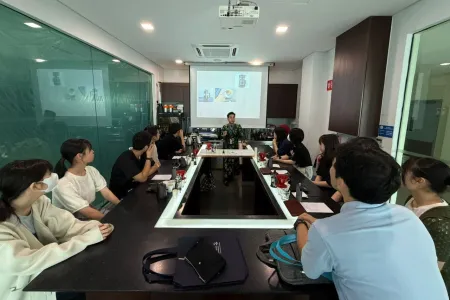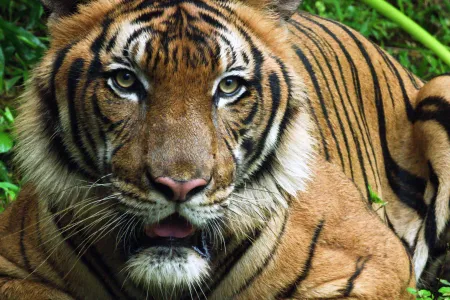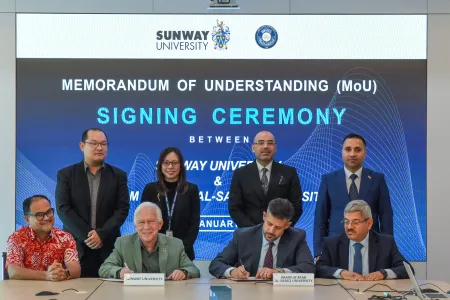School of Hospitality’s Study Field Trip to Siem Reap and Busan
The School of Hospitality recently organized a study field trip to Siem Reap, Cambodia and another to Busan, South Korea, as part of the requirement for the BSc (Hons) International Hospitality Management (BIHM) or BSc (Hons) Culinary Management (BCM) programmes - particularly for the core subject ‘Strategic Management for Hospitality Business’ offered to year 3 students.
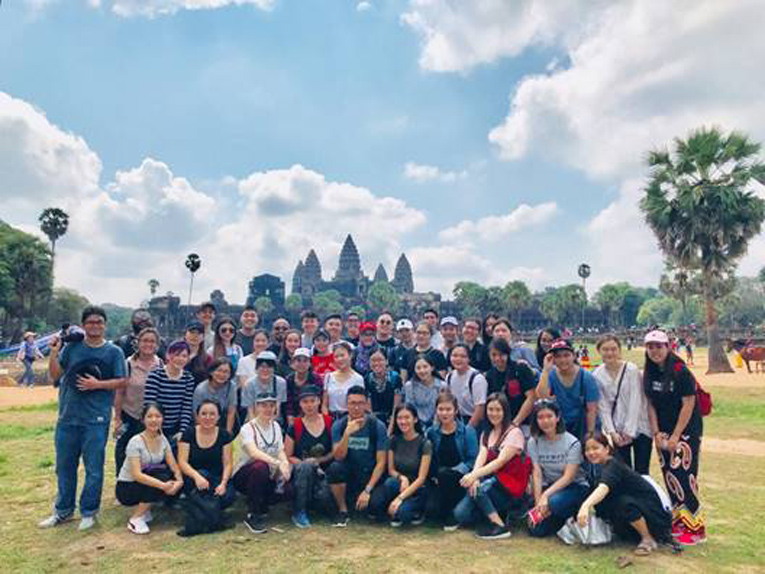
The first group of 52 students led by Dr Daniel Chong (subject lecturer) participated in fieldwork data collection over a four day period in Siem Reap early May. The study concerned six hospitality segments: 1) Hotel businesses 2) Cultural heritage tourism 3) Business meetings 4) Food tourism 5) Eco-tourism, and 6) tour businesses. Data collection activities included observation audits, mystery shopping activities, in-depth interviews and secondary data analyses. Furthermore, students were able to visit one of the largest religious monuments in the world, Angkor Wat, as part of the learning activities arranged. The largest MICE center and resort, Sokha Angkor Resort, as well as several 5 Star international hotels, such as Raffles and Le Meriden, were also visited by some of the groups for the purpose of carrying out in-depth interviews and observation audits.
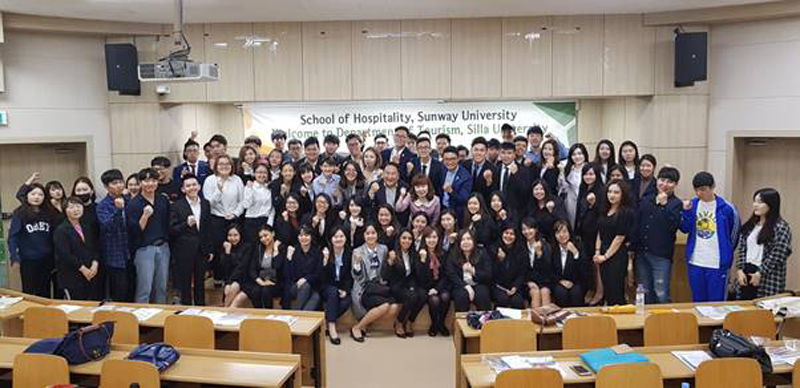
This is the School’s 9th year of sending students out to explore strategic management practices on an international scale. According to Dr Daniel Chong, “The preparation of a fieldwork study trip is a complex process. It involves the planning of a tour itinerary encompassing such research components as business environmental screening, issue identification, data collection methodology and site confirmation, as well as interviews with senior representatives of hospitality-related companies and government-related agencies of the host country, in this case Cambodia.”
“Other than international exposure on how strategic management can be conducted differently due to cultural, political, economic and technological differences, students had the opportunity to apply their research skills at a higher level of testing and in a distinct geographical context. Accordingly, dealing with such environmental variables as culture and language were also challenging additions to the research enquiry,” he added.
Another group of 56 students, accompanied by Dr Daniel Chong (fieldwork leader) and Dr Teh Pek Yen, visited Busan from 14th - 20th May with the purpose of collecting fieldwork data related to seven key tourism components: 1) Hotels 2) Cultural heritage 3) Health and Spa establishments 4) Gastronomy sites 5) Coastal domains 6) Shopping tourism, and 7) Business Meetings (MICE). Exclusive interviews were conducted with hotel, retail, MICE, restaurants and travel agent managers, Busan Tourism Board representatives, and prestige academicians from reputable universities in Busan. A visitation to a partner university, Silla University was also the highlight of the trip.
This is the second visit by the School of Hospitality to South Korea for a fieldwork project though to a different location. Dr Daniel Chong said, “The preparation of this fieldwork studies is quite challenging because it involves rigor in research methodology.” He explained that securing places and interviews with senior representatives of hospitality related companies and government related agencies of the host country was difficult. As English is not well spoken, students needed to translate their questionnaire to Korean and interpret interview responses to English. Dr Daniel further noted that the biggest learning breakthrough in this trip was for students to realize that language is no longer an absolute barrier to knowledge acquisition. Students can build professional relationships with many industrial experts and academicians which will benefit them in future networking.


